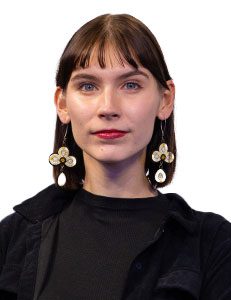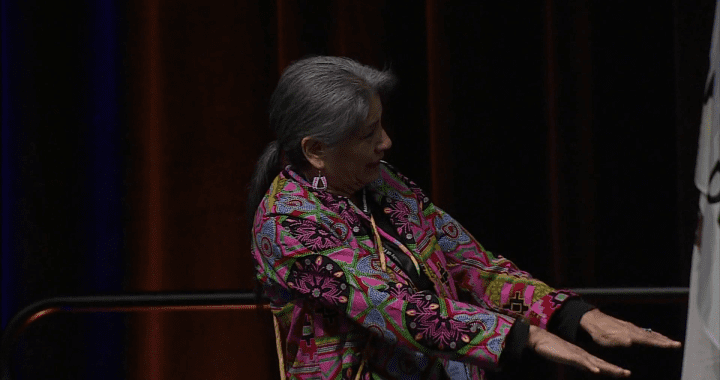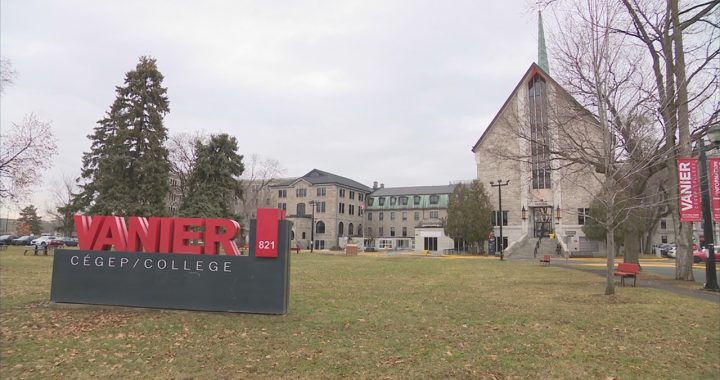Tunngasugit is the lifeline Nikki Komaksiutiksak wishes she had when she was young.
At 6 years old, she moved to Winnipeg from Chesterfield Inlet, Nunavut, to live with her aunt, marking the beginning of her journey through the child welfare system.
“Living here in the city of Winnipeg and not really having access to culture and language growing up made it really difficult for me,” she said. “So, if I was going through that, that meant a lot of other Inuit who were living in the city were also going through that.”
Decades later, Komaksiutiksak is the executive director of Tunngasugit, a non-profit serving Inuit living in Winnipeg. The organization, which takes its name from the word for “welcome” in Inuktitut, has helped hundreds of Inuit access services, cultural programming and transition to life in the city.
“We opened our doors (on) May 4th of 2019. We started with one staff member with a board of directors,” Komaksiutiksak said. “Today we have about 26 staff, a healthy board of directors and a beautiful space that we just moved into.”
After five years, Tunngasugit has expanded from its modest, 1,200 square foot space in Winnipeg’s west end to a space over ten times its size in the North End.
A ‘big game changer’
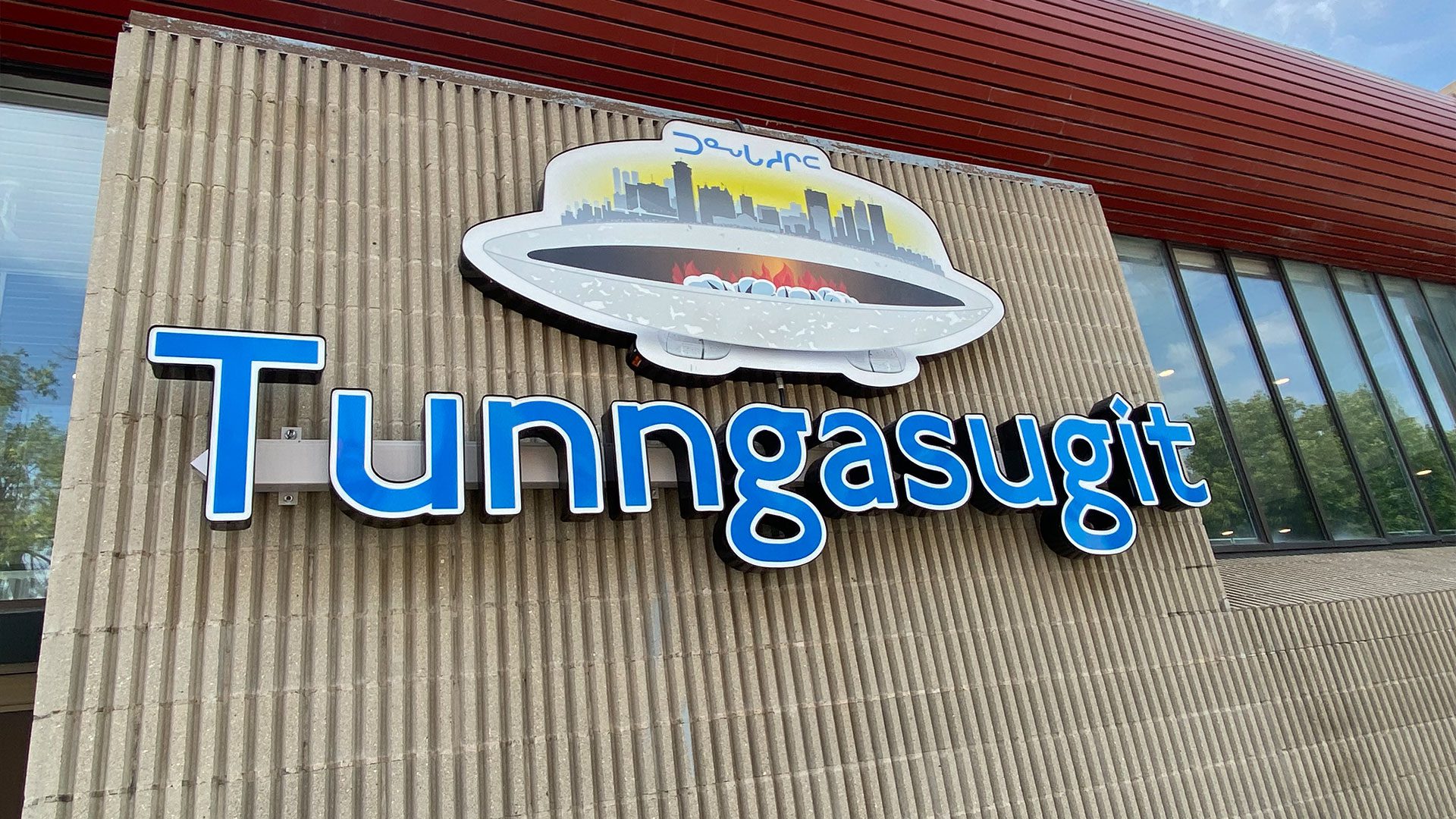
It’s the first week of the non-profit’s daily drop-in, where country food and community connections await those who stop by.
Youth program manager, Maxine Angoo, and lead community lounge helper, Pudluayaruak, are gearing up to host youth programming in the basement.
“This space specifically is going to be for the Inuit youth program and all of our community events we usually hold once a month,” Angoo said. “They’ll be doing throat singing, learning how to play Inuit games, art, floor hockey you could play down here.”
The building retains remnants of its former life as a Ukrainian Canadian Veterans Branch. Some elements, like the bingo scoreboards, will be kept, while the rest of the space will be repurposed.
“(In) our small space, we couldn’t have any events there, it was way too small. We were operating out of three separate buildings, so we often had to rent community space.,” Angoo said of Tunngasugit’s former space. “So, that’s a big game changer now that we’re here, we have our own space, we don’t have to pay for other space.”
Removing barriers for Winnipeg’s urban Inuit
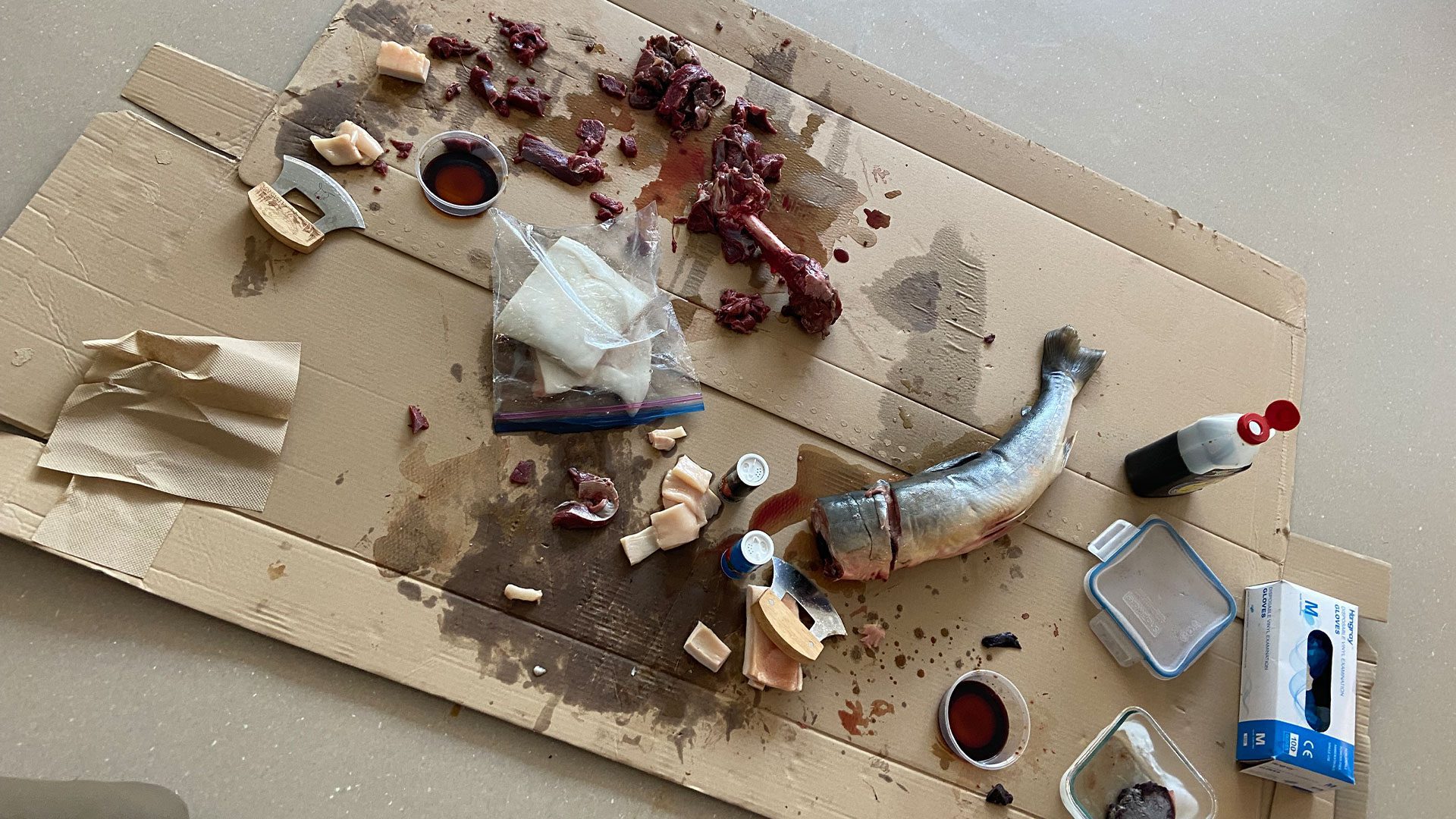
According to the 2021 census, just under 500 Inuit live in Winnipeg. However, thousands travel to the city every year to access medical care, educational opportunities and other services unavailable at home.
When Inuit move to Winnipeg, they often encounter barriers, Komaksiutiksak said.
Before Tunngasugit successfully lobbied for a policy change that came into effect last month, Inuit in Manitoba faced difficulty using proof of enrollment as an Inuit land claim beneficiary as identification for proof of legal status in Canada. Komaksiutiksak said that contributed to a “ripple effect” of barriers.
“(With) not able to retrieve identification and not being able to get that form of identification, then there was just a ripple effect into so many other barriers that are associated with that: not being able to find housing, not being able to go apply for various social programs, you know, job searches,” she said.
In the new space, Inuit can access laundry services, sewing stations and a clothing donation closet.
As they expand programming in the new facility, Komaksiutiksak said they’re continuing to advocate for more policy changes aimed at removing hurdles with Inuit in Winnipeg.
“Not only are we a non-for-profit organization supporting our community, but we’re in the background also changing legislation and policy to include Inuit, which is exactly what it is that we need to do to support our community,” she said.
Once renovations are complete in September, Tunngasugit plans to host an official grand opening in the new space.




